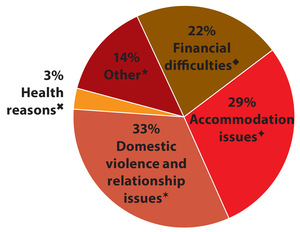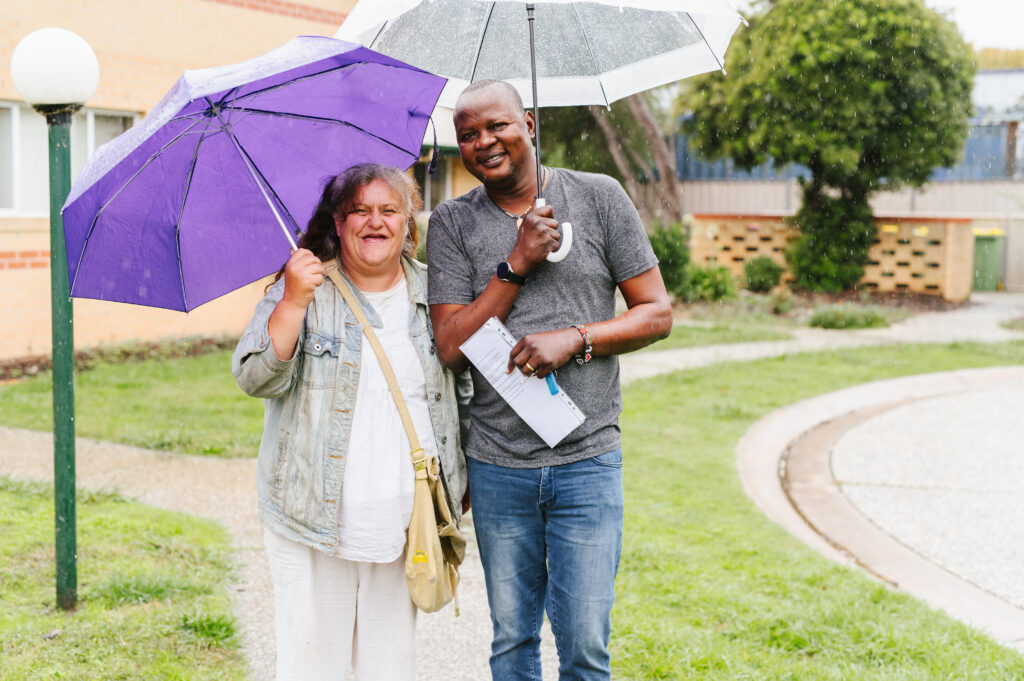Homelessness In Australia As A Crisis
Homelessness in Australia is a growing crisis affecting thousands of individuals and families in the country. It is a complex issue with deep-rooted causes that require comprehensive solutions. In this article, we will delve into the factors contributing to homelessness and explore how we can make a difference.
Numerous factors can lead to homelessness, including economic instability, lack of affordable housing, mental illness, addiction, and domestic violence. These causes often intersect, forming a web of challenges that individuals must navigate in order to escape homelessness.

By understanding the root causes, we can begin to address them effectively. This article will examine proven strategies, such as providing affordable housing options, improving access to mental health and addiction treatment services, and implementing preventative measures to combat domestic violence.
Homelessness in Australia – Statistics
Homelessness remains a pressing issue in Australia, with statistics indicating that a significant portion of the population faces housing instability. According to data from New Internationalist’s Website, the number of people experiencing homelessness in Australia has been a matter of concern. This introduction will shed light on the prevailing homelessness crisis and its impact on individuals and communities across the country.
According to the Australian Institute of Health and Welfare (AIHW), the incidence of homelessness in Australia experienced fluctuations, ranging from 51 individuals per 10,000 population in 2001 to 48 in 2021 (ABS 2023). Notably, there was a decrease between the 2016 and 2021 Census collections, dropping from 50 people per 10,000 in 2016 to 48 in 2021.
From 2011 to 2021, the majority of the rise in homelessness rates was attributed to individuals residing in severely crowded dwellings, escalating from 41,370 people in 2011 to 47,900 in 2021. Over the same period, the count of individuals in boarding houses saw a 48% increase, surging from 14,900 in 2011 to 22,100 in 2021. Additionally, the number of individuals residing in other temporary lodgings witnessed a nearly fivefold surge, soaring from 700 in 2016 to 3,900 in 2021 (Figure 1).
<script type=’module’ src=’https://viz.aihw.gov.au/javascripts/api/tableau.embedding.3.latest.min.js’></script><tableau-viz id=’tableau-viz’ src=’https://viz.aihw.gov.au/t/Public/views/Homelessnessandhomelessnessservices_figure1_AW23_10082023/Figure’ width=’800′ height=’650′ toolbar=’bottom’ ></tableau-viz>
What Are The Reasons?

★ housing stress, unemployment
◆ housing crisis, inadequate or inappropriate dwellings
✦ time out from family, family breakdown, violence and assault
✶ mental health issues, substance abuse issues
✖ transition from care, custody, lack of support, discrimination
Together, we can make a positive impact on the lives of those experiencing homelessness. Through awareness, education, and collective action, we can create a society where everyone has access to safe and stable housing. Join us as we explore the root causes of homelessness and discover how Reconnect Support Services can help those in need.
How Homelessness Affects Individuals and Communities
Homelessness can have a significant impact on individuals and communities. Individuals experiencing homelessness may face significant health risks, including exposure to the elements, lack of access to medical care, and increased risk of infectious diseases.
Additionally, homelessness can have a significant emotional and mental health impact. Individuals experiencing homelessness may experience feelings of isolation, depression, and hopelessness. They may also struggle with addiction or mental health issues.
Homelessness can also have a significant impact on communities. It can lead to increased crime rates, strain on social services, and a decrease in property values. Addressing homelessness is not only a moral imperative, but it is also essential for maintaining healthy and thriving communities.
Identifying The Root Causes Of Homelessness
Homelessness is a persistent and complex issue in Australia, influenced by a range of factors that intersect and contribute to the precarious living situations faced by a significant portion of the population. These factors, often supported by statistics, include:
1. Economic Instability

Economic instability, driven by factors such as unemployment, underemployment, and income inequality, plays a significant role in the growing homelessness problem in Australia. In 2016, the Australian Bureau of Statistics reported that 42% of people experiencing houselessness cited financial difficulties as the primary cause.
2. Lack of Affordable Housing
The lack of affordable housing, particularly in major cities, is a major driver of homelessness. Skyrocketing property prices and rental costs have made housing unattainable for many low-income individuals and families. As of my last knowledge update in 2022, statistics showed that Australia faced a shortage of around 400,000 affordable rental homes.
3. Mental Illness
The relationship between mental health and houselessness is significant. According to a report by Mission Australia, approximately 50% of unhoused individuals in Australia report having a mental health issue. The lack of appropriate mental health services and support further compounds this problem.
4. Addiction
Substance abuse and addiction issues are closely linked to homelessness, with individuals struggling to maintain employment, housing, and overall stability while dealing with addiction. The Australian Institute of Health and Welfare reported in 2019 that 45% of people seeking assistance for homelessness also had substance use issues.
5. Domestic Violence
Domestic violence is a distressing factor leading to homelessness, particularly for women and children. The Australian Institute of Health and Welfare revealed that domestic and family violence was the leading cause of homelessness for 28% of clients seeking support in 2018-2019.
These factors often intersect, creating a complex web of challenges for individuals experiencing homelessness. For instance, someone who loses their job due to economic instability may turn to addiction as a coping mechanism, making it even more difficult to maintain housing.
Addressing homelessness in Australia requires a holistic approach that considers the intricate connections between these causes and the development of comprehensive support systems and policies to combat this issue effectively. Accurate statistics are crucial for understanding the scale of the problem and guiding intervention efforts in the country.
Combatting The Root Causes Of Homelessness
By understanding the root causes, we can begin to address them effectively. There are proven strategies for addressing homelessness, including providing affordable housing options, improving access to mental health and addiction treatment services, and implementing preventative measures to combat domestic violence.
1. Providing Affordable Housing Options
One of the most effective ways to address homelessness is by providing affordable housing options. This can include building new affordable housing units or renovating existing housing stock to make it more affordable.
Additionally, providing rental assistance or subsidies can help individuals and families maintain stable housing. This approach can be particularly effective for those who are experiencing a temporary financial setback and need assistance to maintain housing.
2. Improving Access to Mental Health and Addiction Treatment Services

Mental illness and addiction often intersect with homelessness. Providing access to mental health and addiction treatment services is critical for addressing the root causes of this problem.
By providing access to quality mental health and addiction treatment services, individuals can address underlying issues that may be contributing to their home problems. This approach can help individuals maintain stable housing and improve their overall quality of life.
3. Implementing Preventative Measures to Combat Domestic Violence
Domestic violence is a significant contributor to home problems, particularly among women and children. Implementing preventative measures to combat domestic violence can help individuals escape abusive situations and maintain stable housing.
This can include providing access to safe housing options, counseling services, and legal assistance. By addressing the root causes of domestic violence, we can help prevent this social issue and provide support to those who need it most.
4. Engaging With NDIS Accredited Support Services
Reconnect Support Services is a non-profit organization that provides support and resources to individuals experiencing home problems. The organization offers a range of services, including housing assistance, counseling, and job training.
By providing a range of services, Reconnect Support Services can help individuals address the root causes of their home acquiring problems and work towards long-term stability. The organization is committed to providing compassionate and effective support to those who need it most.
Conclusion: Taking Action To End This Problem

In conclusion, addressing this requires collective effort, compassion, and a commitment to creating meaningful change. It is not merely about providing temporary shelter, but about tackling the complex web of challenges that lead to losing a home in the first place.
To end this lingering problem, societies must invest in affordable housing initiatives, mental health support, and substance abuse programs. Education and job training opportunities should be made accessible, and communities need to foster empathy and understanding for those experiencing lack of shelters or homes.
Additionally, support services like Reconnect play a crucial role in providing immediate relief and guiding individuals towards stability. By prioritizing these efforts, we can create a society where everyone has a place to call home, ensuring dignity, security, and opportunity for all.
Together, by taking action at individual, community, and policy levels, we can make homelessness a thing of the past and build a future where everyone is given the chance to thrive.













